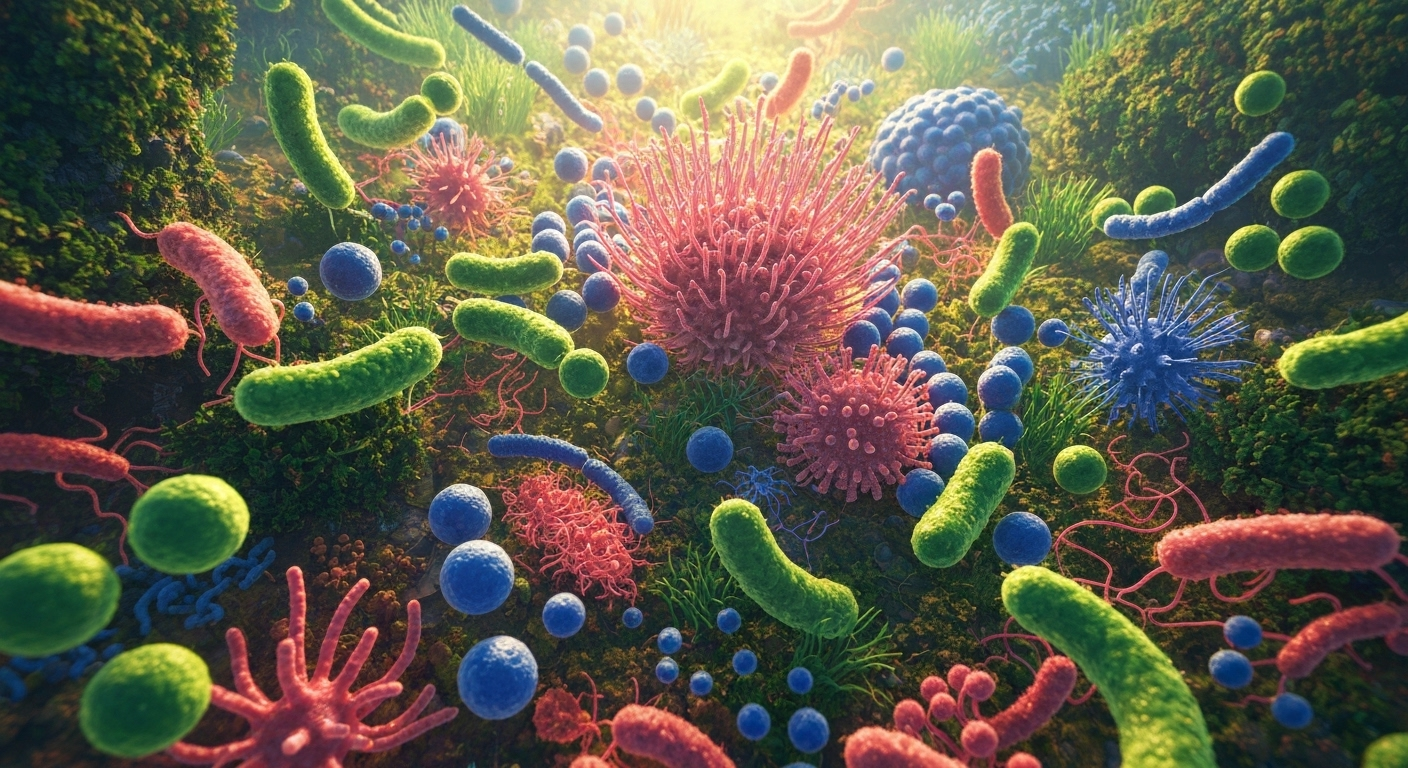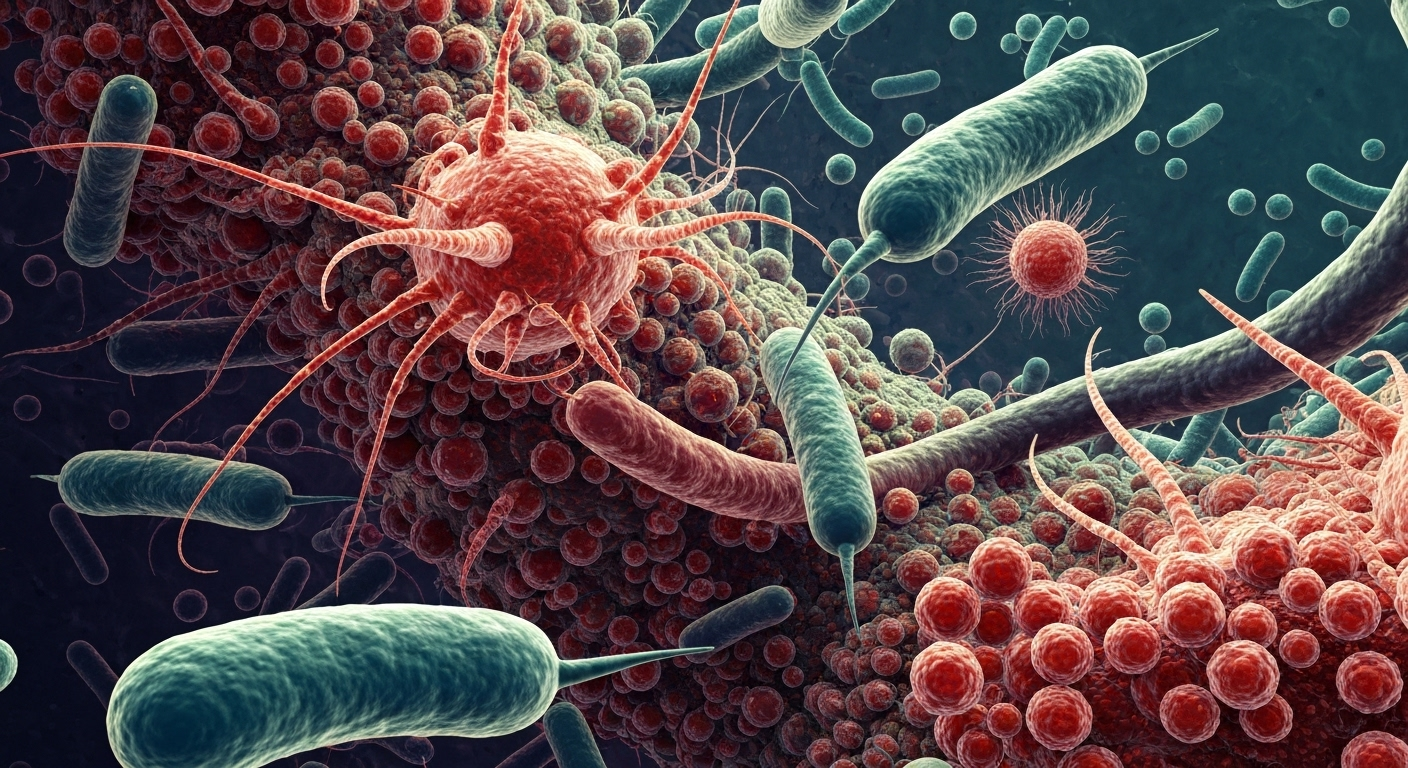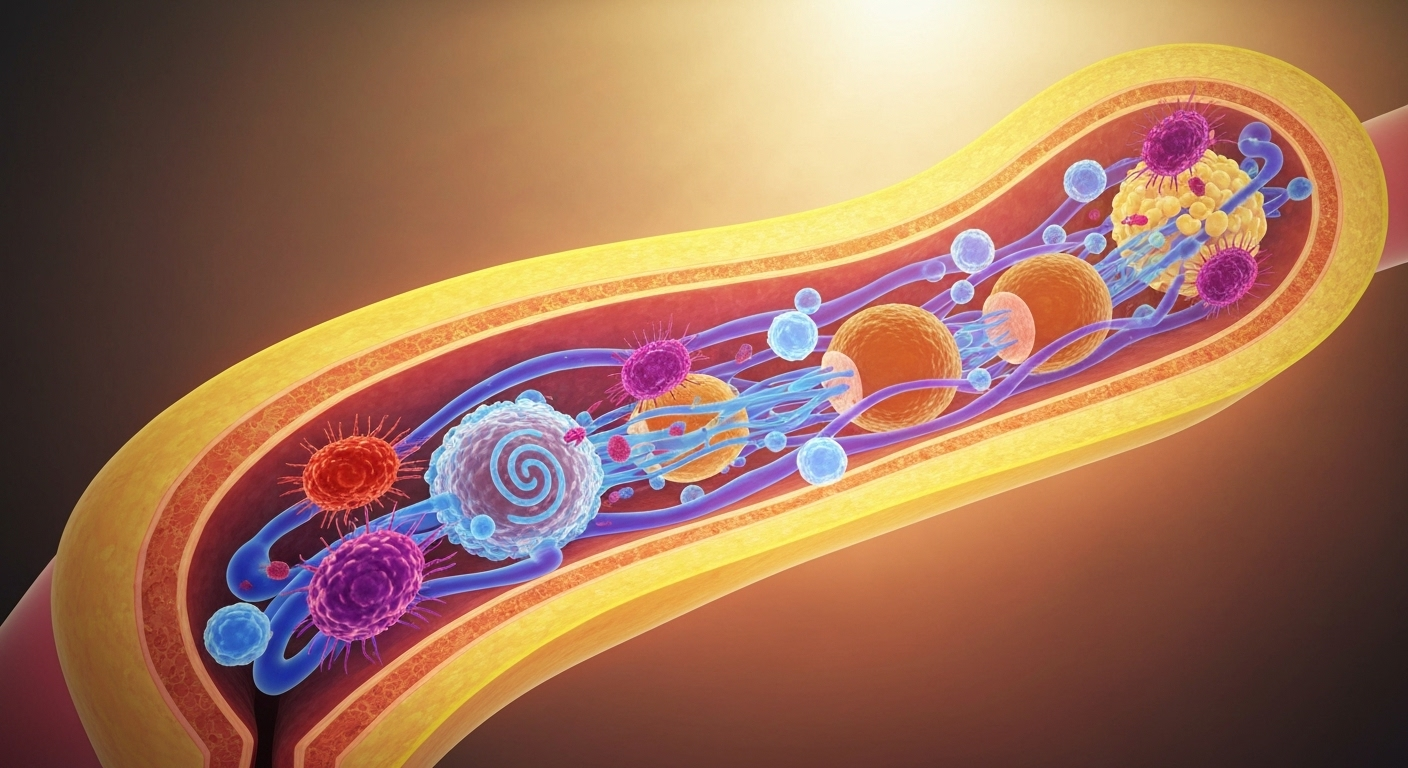Key Highlights
- Your body’s way to get rid of harmful stuff depends a lot on gut health and the balance of your gut microbiome.
- Good gut bacteria help break down and take out toxins, chemicals, and heavy metals.
- Bad gut health can slow the body’s normal way to get rid of harmful substances. This means those bad things can build up over time.
- Don’t count on fad detox diets. Real detox starts when you help your gut feel good with easy, healthy habits that last.
- You can help your gut’s ability to detox by eating foods with probiotics and fiber, drinking enough water, and choosing clean foods.
- Helping your gut can give several health benefits. You may notice better digestion, feel better overall, and get sick less often. It does more than just help your body clean out the bad things.
Introduction
When you hear about ways to detox your body, you might think the liver and kidneys do most of the work. But there's one more part that plays a big role. The digestive system, especially the gut microbiome, does a lot to help clean out harmful substances. Taking care of your gut health is one of the best things you can do to help your body get rid of bad stuff from the inside. Your gut is where real detox starts. Let's see why gut health is a key reason your body can flush out harmful substances so well.
Understanding Gut Detoxification and the Role of Your Microbiome
Gut detoxification is not about cutting out all foods or following popular cleanses. Instead, it is the way your digestive tract helps take care of and take out things your body does not need. This process works well when there are many beneficial bacteria living in your gut.
These tiny helpers in your gut play a key role in breaking down stuff that your body can't process by itself. Knowing how gut bacteria help with gut health is very important. It is the first step to help your body clean itself better.
What Is Gut Detoxification?
Gut detox means helping your body take care of your digestive health. It lets your gut get rid of waste and harmful substances. This is not the same as many detox diets you see in stores. Most detox diets make health claims, but there is not much proof behind them. A real gut detox works to balance your gut’s good and bad bacteria, called the microbiome. It’s not something that will give results overnight. A good gut detox helps your gut work better every day.
The goal is to make a space for beneficial bacteria in your body. These good bacteria help break down the food you eat. This lets your body get the things it needs and get rid of what it does not.
This process is not just a quick fix. It is more about making good habits that help your stomach feel better over time. When you take care of your gut, you help your body stay healthy on its own.
How Gut Bacteria Support Detox Processes
Your gut microbiome is made of tiny living things. These beneficial bacteria help with the body’s detox process. They do not just stay there. They are always working to look after your digestive health and keep you safe from things that might harm you.
When you look after your gut, you help make this inner army stronger. A balanced gut microbiome helps to break down things that might lead to swelling or other problems with health. These bacteria are basic to turning what you eat into energy and making sure your body gets rid of waste the right way.
Here’s how they help:
- Breaking Down Food: Gut bacteria help break down fibers in food. This releases some nutrients and helps remove waste.
- Supporting Immunity: A good mix of beneficial bacteria in your gut can support the immune system. This helps your body react when there is a problem.
- Reducing Inflammation: Beneficial bacteria in the gut can help the body handle swelling and pain, starting with the gut itself.
Toxins, Chemicals, and Heavy Metals: What Ends Up in Your Gut
Every day, the digestive system deals with many harmful substances. These can come from your food, your water, and other things in the area around you. Some common harmful substances are chemicals from farm sprays, metals that are not good for you, and things in food that can feel bad in your body. The body usually knows how to handle some of these. But, if there are too many, it can lead to health concerns.
Some gut cleanses or detoxes may be risky. This is true for ones that use unpasteurized juices or harsh laxatives. It is important to know where toxins come from. You should also understand how your gut deals with them. This helps you support your health in a way that is safe and works well.
Common Sources of Toxins Affecting the Digestive System
The toxins that go into your digestive tract usually come from things you eat and drink every day. Some foods and drinks have things in them that can cause swelling or help harmful bacteria grow. This can turn into a big health issue after some time. If you want to lower the amount of these toxins, watch what you eat and drink.
Some cleanses use unpasteurized juices. These juices can bring in harmful bacteria. They work against your goal of having a healthier gut. It is better to stay away from foods that cause swelling in the body. Pick choices that help your body feel good.
Here are some usual things that can harm your gut:
- Added Sugars: These are in things like processed foods, sweet drinks, and desserts.
- Refined Carbohydrates: You can find these in white pasta, pastries, and cakes.
- Foods High in Saturated Fat: This is often found in processed meats.
- Alcohol and Caffeine: They can bother the gut and make things feel out of balance.
How Your Gut Handles and Eliminates Harmful Substances
A healthy gut is like a filter that helps keep you well. The lining in your intestines works as a barrier. It stops harmful substances from getting into your blood. The beneficial bacteria in your gut have an important job too. They break down and neutralize toxins. After that, these toxins get ready to be removed as waste products. This helps to keep your digestive health in good shape.
When your gut works well, it separates the good things your body needs from the things it does not. It keeps the healthy parts and helps get rid of the bad ones. This natural way to clean out your system brings many health benefits. You feel more energy, and your body fights off sickness better.
Here is how a healthy gut and an imbalanced gut each deal with toxins:
|
Feature |
Healthy Gut Function |
Imbalanced Gut Function |
|---|---|---|
|
Intestinal Barrier |
Strong and selective, keeps toxins out of the bloodstream. |
Weak or "leaky," allows harmful substances to pass through. |
|
Bacterial Action |
Beneficial bacteria neutralize toxins and aid digestion. |
Harmful bacteria thrive, producing more toxins and inflammation. |
|
Elimination |
Efficient and regular removal of waste products. |
Slowed or irregular, leading to toxin buildup and bloating. |
|
Nutrient Absorption |
Maximizes absorption of essential nutrients. |
Impaired, leading to potential deficiencies and low energy. |
The Connection Between Gut Health and Detox Efficiency
Your body’s detox system works best when your gut health is good. A gut microbiome that has many different types of bacteria helps remove waste and bad chemicals faster. When the gut is not in balance, it can’t do this as well. This slows down the way the body gets rid of toxins.
This is why gut health is so important when you want health benefits that last, and not just quick fixes from detox diets. A healthy gut helps your body clean out waste better. It can also help with bloating. This is because it helps you go to the bathroom more often and stops too much gas, which is made by harmful bacteria.
Impact of an Imbalanced Microbiome on Chemical Detox
When the gut microbiome is not balanced, the body can’t clean out chemicals as well as it should. This problem is called dysbiosis. It may happen because of too much stress, a poor diet, or not getting enough sleep. When this balance is off, there are fewer beneficial bacteria in the gut and more harmful bacteria can grow.
This change can the cause a big health issue. When the gut is out of balance, it does not break down or remove toxins well. The toxins can stay in you or go back into the body. This may lead to ongoing inflammation. It can also bring other side effects.
Some strong cleanses do not help. They can make things worse, since they get rid of both good and bad bacteria. The best way for your gut microbiome is to feed it well. This helps good bacteria grow. Then, they can push out the bad bacteria on their own.
Signs Your Gut May Be Slowing Down Toxin Removal
Your body can give you signs when your digestive system is having a hard time with detoxification. At first, these signals can be small and easy to miss. But if they keep happening, they might be a sign of health concerns. Pay close attention to these signs. When you notice them, it could be time to give some support to your gut health.
Ignoring these problems or trying very strong detox methods can bring risks and side effects. Sometimes, this can make your gut feel worse. You might feel bloated, tired, or see changes in your skin. All these issues can come from a slow gut that does not clean waste well. But if you have severe abdominal pain, you should talk to a healthcare professional right away.
Here are some signs that show your gut might need some help:
- Swelling in your belly that does not go away, gas, or stomach pain that keeps coming back
- Feeling tired all the time and having low energy level
- Having skin problems that you can't explain, like pimples or red spots
- Noticing that the way you go to the bathroom has changed, such as having constipation or diarrhea
- Finding it hard to focus or often feel cloudy in your head
Natural Ways to Support Gut Detoxification at Home
Supporting your body’s own way of cleaning the gut does not have to include strict steps. It is about making easy and lasting dietary changes. You can also help by changing some habits in your day. Those changes will support gut health over time. When you eat whole foods and keep up good habits, your gut can do its detox job better.
Adding more fiber to what you eat, drinking enough water, and picking good foods all help your gut work better. These are simple things that can help clean your body from the inside. Let’s check out which foods and habits you can use to make your gut feel and work better.
Foods and Nutrients That Enhance Gut Cleansing
Eating a healthy diet with the right nutrients can help your gut clean itself. You need to eat less inflammatory foods and pick things that feed your beneficial bacteria. This helps you with the digestion of food and takes some of the hard work off your gut. These foods also help keep your microbiome healthy and working well.
Raising your fiber intake is very helpful. Fiber works like a scrub brush in the digestive tract. It helps move waste out of the body. Healthy fats are good, too. They help lower swelling in the body.
Add these foods to your meals each day to help your gut health.
- Leafy Green Vegetables: Spinach and kale have a lot of fiber and stuff that is good for you.
- Fermented Foods: Sauerkraut and kimchi help give the body the good bacteria it needs.
- Low-Sugar Fruits: Berries and apples give you fiber and also help protect cells.
- Healthy Fats: Avocado, olives, and olive oil help fight swelling in the body.
- Lean Protein: Oily fish and chicken help keep the body healthy.
- Complex Carbohydrates: Brown rice and quinoa help you feel full and give steady energy throughout the day.
Probiotics, Fiber, Hydration, and Clean Eating for Gut Health
A quick, three-day gut reset can make you feel better for a short time. But if you want good digestive health, you need to stick to healthy eating habits every day. The most important things for the gut are probiotics, fiber, drinking enough water, and eating clean food. Adding these things to your daily routine works better than doing any short cleanse.
Probiotics are in fermented foods like yogurt and kefir. These foods bring helpful bacteria into your digestive system. A diet with lots of fiber from fruits, vegetables, and whole grains feeds these good bacteria. Eating enough fiber helps you have regular bathroom breaks. You should also drink plenty of water. Water helps fiber work well and keeps your digestive system healthy.
In the end, clean eating is about choosing whole foods that have not been processed. You want to stay away from foods with added sugars and refined carbs because they feed harmful bacteria. When you stick to these habits, your gut gets stronger and works better. This helps your body clean itself in a more natural way and keeps out harmful bacteria.
Conclusion
To sum up, taking care of your gut is key to staying healthy and cleaning out toxins. Your gut bacteria help break down and get rid of harmful stuff in your body. If your gut bacteria are balanced, the body can clear out bad chemicals and heavy metals more easily. But if your gut health is not good, the detox process slows down. This can cause toxins to build up and lead to health problems. To boost gut health and help your body remove toxins, you can add probiotics, foods with lots of fiber, drink plenty of water, and eat clean as part of your daily routine.



